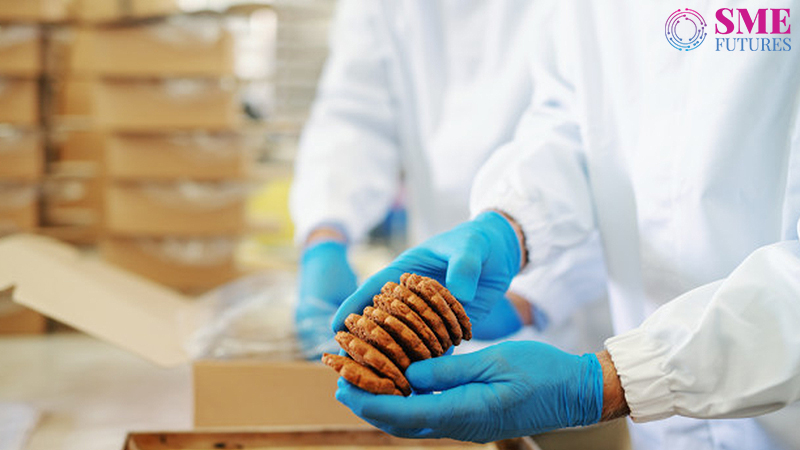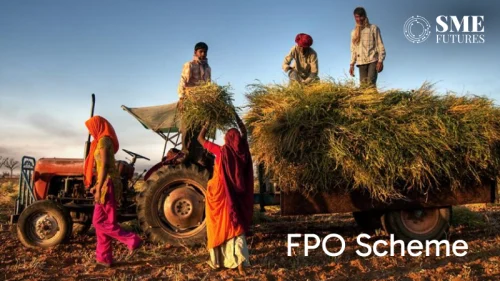With the packaged food industry evolving and maturing in the country in recent years, packaged sweets have come to register as an integral part of that process. The traditional popularity of sweets coupled with an increased consumer consciousness of hygiene and cleanliness has made sure that packaged sweets have acquired incredible traction. The fact that sweets already constitute about 60% – in terms of turnover[1] – of the sweet and namkeen industry means that sweets as a snack category have been a strong force in the country.
As such, this popularity of sweets offered in a neat package itself gives a fillip to the packaged food industry in the country. In other words, packaged sweets are revolutionising the packaged food industry. With authorities increasingly clamping down and tightening norms around food labelling and general safety and hygiene, this is further serving the cause of the packaged food industry.
The emerging packaged food landscape
Even before Covid-19 had ‘bared its fangs,’ the Indian packaged food sector had been on a positive trajectory. For instance, last year, the packaged food industry had recorded an impressive over 14% growth for April to August period.[2] However, what is particularly notable is that this growth had occurred despite the broader consumption slowdown.
In more recent times, while western snacks have been in a high growth category, RTE (ready-to-eat) is a high potential category. In terms of sales, rural and metro markets have been the best performers with tier 1 and the rest of urban areas contributing almost similarly. Therefore, with a permanently sizeable middle class with increasingly hectic schedules and busy lifestyles, the room for ready-to-serve packaged food can never be enough for the Indian market, and there will always be room for growth.
The sheer range of sweets available is a hugely motivating factor.
Representing both traditional and the modern, the Indian sweet market is characterised by an extraordinary array of offerings. From traditional milk-based sweets and open mithais offered by unorganised and traditional sweet shops to sweets and confectionery products prepared by organised bakeries, to specialised milk-based products by dairy establishments to luxury mithai brands promoted by new-age confectioners to organic sweets by modern food brands, the range of sweets products available in the country is simply mindboggling.
Traditional sweets overwhelmingly dominant
However, it is the traditional sweets that dominate the Indian market. In an estimate, the Indian traditional sweets market is worth around $6 billion in which packaged sweets market is about Rs 3500 crores.[3] Based on dairy, fruits, cereals and pulses or different combinations of different ingredients, the traditional Indian sweets too, boast of a nearly inconceivable range. Add to this the diversity, the variety of sweets that have been nurtured and relished for ages in different regions of the country signifying regional specialities and tastes.
In fact, not only are the traditional sweets a staple and indispensable part of festive and religious occasions and family functions within the country, but they also retain their charm and appeal among the Indians and NRIS on foreign shores in sort of an emotional-cultural bonding with the motherland.
The export market for traditional sweets (also non-traditional sweets) is relatively large, giving a boost to the packaged food industry. In another impressive display, the confectionery market alone is estimated at $1.5 billion[4] and has grown at a CAGR of over 12% for almost a decade.[5] Another research forecasts that the confectionery and snack market will grow by over 10% between 2020 and 2025.[6] This massive array of items coupled with the arrival of an intensely hygiene-conscious generation of sweet lovers would give an enormous stimulus to the packaged food and the packaging industry in the country.
The growing packaging industry itself
Simultaneously, with increasing investment in food processing industries, the rapid expansion of organised retail and the rising export market, the packaging industry itself has seen considerable momentum. The need for improvement in shelf life and the maintenance of the production pace while upholding quality necessarily require standardised and quality packaging.
With the advancement in packaging methods and technologies such as the emergence of eco-friendly packaging such as biodegradable technologies, nanofabrication technologies, and the shift from rigid to flexible packaging, the packaging industry is undergoing considerable upgrading and change. It has been forecast that the Indian food and beverage packaging market is set to cross USD 122 billion by 2025 from about USD 26 billion in 2019 at a CAGR of nearly 30%.[7]
Government tightening norms
With food regulatory authorities increasingly raising the bar for quality and hygiene for sweet products and even other food and snack items, the packaged food industry would receive a further boost.
Only in February this year it was reported how local sweet shops had to display ‘best before date’ mandatorily, and the date of manufacturing on non-packaged and loose sweets kept in a container or tray, a more stringent norm than the then existing labelling rules which required these details for pre-packaged/pre-packed sweets only.[8]
Such measures could only add to the push for the packaged food industry. Significantly, prompted by sustainable environmental concerns, the government is also adopting policies to promote recyclable technologies for packaging.
Therefore, as Covid-19 has precipitated an all-out migration to packaged food away from open, loose and perceivably unhygienic food and snack culture, packaged sweets and confectionery category would impart the strongest push to the packaged food industry.
Despite the recent societal and consumerist drive for healthy and nutritional snacking, the sweets and mithais would continue to form an indispensable part of the country’s food culture, giving a sustained thrust to the packaged food industry.
Given that small packs of Rs 5/10 contribute to 70-80% of the snacks category’s sales, this is encouraging. After all, guilty pleasures can be derived from small packs, since one can never really wish them away.











